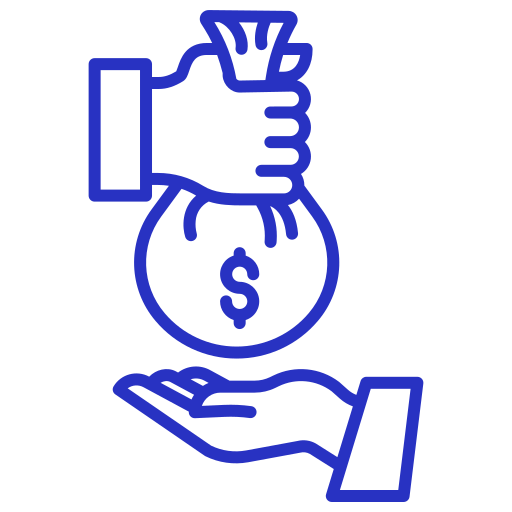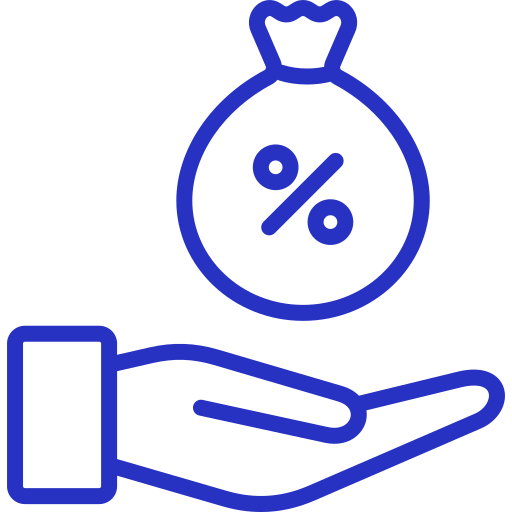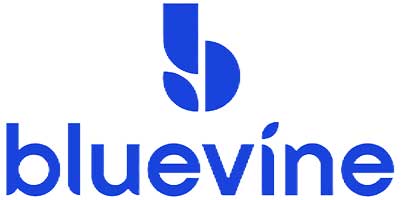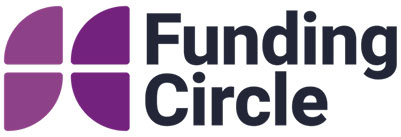Whether you’re a first-time entrepreneur or a seasoned business owner, starting a new small business can be a daunting task.
One of the most difficult challenges you’ll face is finding funding to turn your dream business into a profitable reality.
Luckily, you have many different small business loan options, from government-backed SBA loans to private lenders.
What Are Small Business Loans?
Small business loans are financial lifelines for entrepreneurs. They’re like a boost of energy that helps businesses grow, expand, or overcome temporary challenges. Essentially, they provide the necessary funds for a business to achieve its goals.
How To Compare Small Business Loans?
Okay, so you’re ready to take your business to the next level, but figuring out which loan is the right one feels like trying to find a needle in a haystack, right? Don’t worry, you’re not alone! Let’s simplify this together.
- First things first: Rates of Interest— Look at the interest rates that different companies offer. In the long run, lower interest rates can help you save cash.
- Following: Terms of repayment: Look at the loan terms and payment plans that will work best for your company. Are you able to make regular payments? Or would you like something that’s more spread out?
- Fees, fees, fees: Little things that are sneaky, right? Watch out for any other fees and transaction fees, which are like setup costs. If you pay off the loan early, you may have to pay a penalty.
- Loan Amount: Think about how much you really need. You shouldn’t go too far, but you also shouldn’t skimp. Check to see if the company has what you need.
- Collateral: Some lenders want something like property or tools to back up the loan. A few don’t. Figure out what makes you feel good.
- Finally, the lender’s reputation: Why would you buy a car without reading reviews? The same goes for lenders. Look into their past, hear what other people have to say, and see how stable they are.
How Do I Qualify For A Small Business Loan?
Lenders have certain requirements they must meet in order to give small businesses funds. These are some of the most common requirements:-
- Credit Score: If you have a good credit background, you have a better chance of getting a loan.
- Time in Business: Having a history of running a business successfully is helpful.
- Income: Having a steady and enough income makes it easier to get a loan.
- Business Plan: A well-organised plan shows how successful your business could be.
- Collateral: Putting up assets as protection for a loan can make your application stronger.
Top Small Business Loans Of 2025
Small business loans come in many different shapes and sizes, but you’ll want to consider them all before making a choice.
To make it easier, here are the most popular small business loan lenders:-
Bank Of America


Loan Amount
$25,000 to $500,000

Interest Rate
Variable rates available for revolving period options

Loan Term
Up to 25-years
Bank of America has been a trusted household name in the banking world for over a century, making it a smart place to begin when looking for a small business loan.
Through Bank of America, you can take out several different types of business loans, each with its own rates and terms, including:–
- Unsecured business lines of credit
- Unsecured business loan
- Secured business lines of credit
- Secured business loan
- Small business auto loans
- Commercial real estate loans
In addition to these offerings, Bank of America also offers SBA loans.
These loans have terms of up to 25 years and can be taken out in amounts as low as $25,000.
BlueVine


Loan Amount
Up to $250,000

Interest Rate
20% – 50%

Loan Term
Varies based on your specific arrangement
BlueVine, not to be confused with a bank, is a financial technology company that is designed with business owners in mind.
Although it offers many impressive tools for business owners, its greatest offering might just be its business line of credit.
With this line of credit, small business owners can access a revolving line of credit as high as $250,000 in as little as 24 hours.
To be approved for a BlueVine line of credit, you must have a personal credit score of at least 625 and your business must meet certain eligibility requirements.
Credibly


Loan Amount
$5,000 to $400,000

Interest Rate
Variable rates available

Loan Term
3 to 15 months
Credibly helps small business owners get the funding they need, with loan amounts ranging from $5,000 to $400,000 and funding in as little as 24 hours.
You can take advantage of funding through Credibly in the form of a working capital loan, a merchant cash advance, business lines of credit, and more.
To qualify for a Credibly small business loan, you must:-
- Be in business for at least 6 months.
- Show consistent revenue, including two to three months worth of business account statements.
- Agree to a term length of 18 months or less.
- Fill out a loan application.
- Show your business mortgage or lease statement, if applicable.
U.S. Small Business Administration


Loan Amount
$500 to $5.5 million

Interest Rate
Can vary depending on the lender

Loan Term
Varies based on your specific arrangement
The U.S. Small Business Administration (SBA) offers government-backed small business loans through affiliated lenders, with loan amounts ranging from $500 to $5.5 million.
These loans offer competitive terms and come with unique benefits, such as flexible overhead requirements, low down payments, and collateral-free loans.
To get an SBA loan for your business, you’ll need to meet the eligibility requirements set out by your lender.
Funding Circle
Funding Circle offers many different small business loan options, including SBA-backed loans and lines of credit.
Among its offerings is a business term loan, however, that can be funded in as little as two days.
With this, you can borrow from $25,000 to $500,000 and have 6 months to seven years to pay it back.
To qualify for a term loan through Funding Circle, you must have a personal credit score of at least 660.
OnDeck
OnDeck offers some of the quickest funded small business loans out there, with an application and funding process that only takes ten minutes.
With OnDeck, you can borrow up to $250,000 with 24 months to pay it back.
You’ll even have a one-on-one team of loan advisors to help make sure that everything goes smoothly.
Plus, OnDeck has a remarkable track record of over $15 billion in funding to small businesses across the U.S. and an A+ rating by the Better Business Bureau.
American Express® Business Line Of Credit


Loan Amount
Up to $250,000

Interest Rate
3% to 9%, based on term length

Loan Term
6, 12 or 18 months
Although not exactly a business loan, the American Express® Business Line of Credit deserves a place on this list.
That is, it can be applied for in just a couple of minutes, it gives you flexible access to money you can use to finance your business needs, and you’ll only be responsible for paying for what you use.
With the American Express® Business Line of Credit, you have the choice of a 6-, 12-, or 18-month long loan term.
However, you must have been in business for at least 12 months and have a valid business checking account to be eligible.
Fundbox
Fundbox makes quick work of funding your small business, with simple applications and a decision on your acceptance in as little as three minutes.
Through Fundbox, you can access up to $150,000 in revolving credit to help your business, as soon as the next business day after your loan is approved.
To qualify for a Fundbo line of credit for your small business, you’ll need:-
- a personal credit score of at least 600.
- $100,000+ in annual revenue.
- At least three months of transactions in a business checking account.
Types Of Small Business Loans
Small business loans come in many different types, each tailored to cover a different kind of financial need or growth stage.
Here are some of the most commonly used small business loans:-
1. Term Loans: With term loans you receive all of your loan funds upfront, then pay it back over a period of time, referred to as a loan term.
Often, these loans come with fixed interest rates and set repayment schedules.
2. Lines Of Credit: A line of credit works much like a credit card, giving you a predetermined credit limit that you can draw from as needed.
3. Invoice Factoring: Invoice factoring is a way for small businesses to fund invoices that they can’t afford to pay.
These loans work by selling your invoices to a third party at a discount in exchange for cash.
4. SBA Loans: A Small Business Administration (SBA) loan, a government-backed loan, offers low interest rates and longer repayment periods.
To be eligible, you’ll need to meet the SBA’s eligibility criteria.
5. Merchant Cash Advances: Merchant cash advances can give business owners cash for a percentage of their future bank deposits and credit card sales.
With these, your repayment is determined by your daily sales.
6. Equipment Loans: Equipment loans are simply business loans that help you buy equipment for your business.
With these loans, the equipment you purchase with the loan is often considered the collateral for the loan.
7. Microloans: Microloans are small loans that are offered to small business owners through nonprofit organizations, online platforms, and lenders within their community.
These loans are best for businesses with small funding needs.
8. Commercial Real Estate Loans: Commercial Real Estate Loans help you purchase commercial properties, such as a storefront or office space.
9.Personal Loans: A personal loan can help you fund your business, but it isn’t recommended since it can be risky for your personal finances.
How To Choose The Right Small Business Loan?
To choose the right small business loan for you, consider these tips:-
1. Assess your funding needs: Determine why you need to take out a loan and exactly how much you need to borrow before you apply for a loan.
2. Check your credit: You should know where your credit stands before you apply for a loan, that way you know if you’ll meet a lender’s requirements and if you should expect a low rate.
3. Research loan types: You’ll want to compare different loan types and choose the one that best fits your business’s needs.
4. Compare interest rates and terms: By comparing interest rates and repayment terms, you can determine whether or not your business can afford to pay back the loan on the lender’s timeline. If not, you will need to search for a different loan.
5. Look out for extra costs: By carefully reviewing the fine print of potential loan agreements before you sign, you can spot any hidden fees that could impact the cost of your loan.
Small Business Loan Alternatives
Small business loans aren’t for everyone, but that doesn’t leave you without options if they aren’t for you and your business.
These alternatives might be a better option for your business needs:-
- Peer-to-Peer (P2P) Lending
- Crowdfunding
- Angel Investors and Venture CapitalGrants
- Business Incubators and Accelerators
- Revenue-Based Financing
- Personal Savings and Family/Friends
- Alternative Online Lenders
FAQs
Who gives the best small business loans?
There is no one best small business lender since every small business is different. Instead, you should compare multiple different types of lenders to find the one offering the best rates and terms, plus consider your business’s needs from a lender. Ultimately, the best lender for you and your business will be the one that aligns with your business’s current financial situation and goals.
What is the easiest SBA loan to get approved for?
The easiest SBA loan to get approved for is, hands down, the SBA Microloan program. Designed to help start-ups and small businesses, these microloans are offered through nonprofit community lenders. With the SBA microloan program, it’s important to remember that loan amounts are usually lower than other options, with loans ranging from a few thousand to $50,000.
Can I get a small business loan as a first-time business owner?
First-time business owners can get small business loans, but their terms may not be as favorable as those with a long business history. That said, there are small business loans tailored specifically to the needs of first-time entrepreneurs. To get these loans, you should be prepared with a business plan, a personal credit history in good standing, and the ability to prove your business idea is profitable.
Do small business loans affect your credit?
Taking out a small business loan can affect both your personal and business credit. When applying for a loan, lenders will typically run a hard pull on your personal credit history to determine your creditworthiness, especially if your business doesn’t have a credit history. Plus, your personal credit history could take a hit if you fail to pay back your loan on time or in full.
What is the quickest way to get a business loan?
The quickest way to get a business loan is often to go through an online lender who offers quick approval. Typically, these lenders have short applications that can be completed online, fast approval decisions, and quicker fund disbursement timelines than traditional lenders.
Is it hard to get a loan for a small business?
Getting a small business loan can be challenging, but with a solid business plan, good credit, and consistent revenue, your chances improve.
What is the best loan option for a small business?
The best loan depends on your business needs, credit score, and financial situation. Explore options like SBA loans, term loans, lines of credit, and equipment financing.
What credit score do I need to get a small business loan?
While lenders vary, a good credit score (typically 680 or above) increases your chances of approval and better loan terms.











